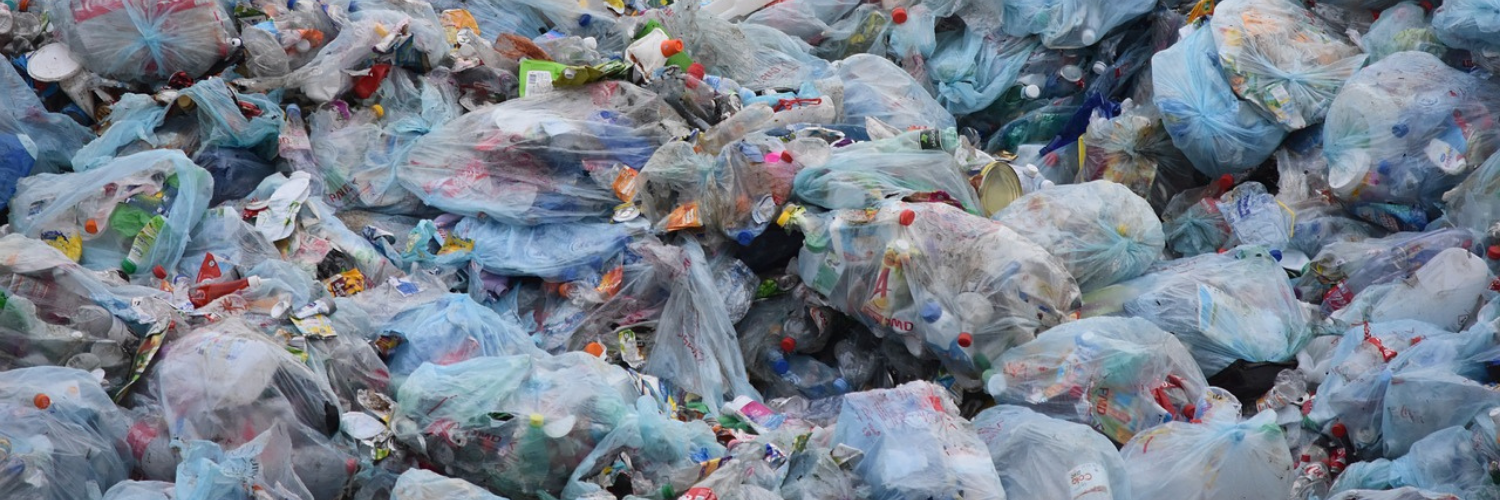Written by: Alex Kirby
If the climate crisis keeps you awake at night, the impact of what we casually throw away is sure to have you worried: it makes global heating a lot worse. But Chile’s waste bus is managing to change behaviour in a country with ingrained ways of disposing of what it no longer wants.
An estimated 1.6 billion tonnes of CO2e (carbon dioxide equivalent) were generated globally from the treatment and disposal of waste in 2016 – representing about 5 percent of global CO2 emissions.
But recycling, experts say, is simply not enough to tackle this deluge. It’s useful and necessary, but waste needs to be “designed out” of the production and consumption cycle early in the life of a product.
The UK-based Rapid Transition Alliance (RTA) argues that humankind must undertake “widespread behaviour change to sustainable lifestyles … to live within planetary ecological boundaries and to limit global warming to below 1.5°C” (the more stringent limit set by the Paris Agreement on climate change). It’s singled out a Latin American pioneer of an approach to waste which it thinks can teach the world a lesson or two.
It’s a social enterprise in Chile which encourages people to produce less waste and to recycle more − and which knows how policy and economic shifts can help to achieve rapid change. Enter TriCiclos, a company focused on changing consumerism and waste management so as to balance its three eponymous cycles: social, environmental, and financial.
Largest network
The TriCiclos model develops more sustainable ways of working, while engaging people in playing an active part and helping companies to re-design their processes to suit a circular economy.
TriCiclos was founded by two friends, Gonzalo Muñoz and Joaquin Arnolds Reyes, both determined to change how society thinks about resource use and to question what happens when something is “thrown away”.
It provides a service – on-site recycling centres called “Puntos Limpios”, or “clean-up points”, made from old shipping containers – where products that can be recycled or recovered are deposited in separate waste streams by consumers.
Brightly coloured and easy to use, each functions as a self-contained small-scale recycling centre coping with 25 different types of materials divided into categories: cellulose, plastic-coated cardboard, plastics, metals (aluminium and other metals), and glass. The containers gain by being installed in a chain of retail stores – one of the major players in home improvements in Latin America – allowing the partners to create the largest national network of clean-up units in Chile.
The company also runs education programmes to teach people about waste disposal and recycling, and its “waste bus” travels the country providing advice on how to re-use waste and recycle it properly. The bus visits schools as well, and supports beach cleaning projects. TriCiclos has also invented a machine that turns plastic into toys, to show the potential of re-using materials, and works with waste pickers’ groups and cooperatives.
Unusually, perhaps, TriCiclos also offers business consultancy. True to its core belief that “waste is a design error that needs to be fixed”, the company helps manufacturers and designers to prevent their products entering the waste stream at all. To influence the production chain of consumer goods even before their creation, the company has developed its own software and machinery to help clients transform materials into circular resources.
Muñoz calls TriCiclos a company of cultural change disguised as recycling: “We want to change the culture of product design; the consumer culture that now exceeds our planet’s capabilities; the culture of citizens who must do their part by choosing better, as well as preparing and separating materials; the culture of the recycler that, as a standard, can and should become a service provider; and finally, the culture of waste that must disappear to accommodate the circular economy culture.”
By 2014 the business had arrived in Brazil. Today it is working in Colombia, Peru, Uruguay, Paraguay, Argentina, Bolivia, and Ecuador.
Nets salvaged
It is spawning imitators at home as well. Marine plastic has become a huge pollution issue on Chile’s beaches and in the poorer southern half of the country no facilities existed for fishermen to dispose safely of unusable plastic nets. Now a recent startup, Bureo, founded by three North American surfers, is collaborating with local fishing communities to keep hundreds of tonnes of discarded nets out of the ocean each year to be treated in Bureo’s warehouse, before being turned into 100 percent recycled pellets which are sold as a sustainable alternative to first-use plastics.
TriCiclos works with waste collectors to pass on their knowledge and experience of recycling to citizens, showing people how to separate their garbage, and also having conversations that lead the Punto Limpio users to reflect on their consumption and purchasing choices, raising awareness of which materials are recyclable as well as which brands and products follow sustainable practices.
Dr Muñoz says: “The first thing you have to consider is where garbage comes from. This way we can understand that in a sustainable society, we will need to stop using a variety of materials and products that are still seen as normal and acceptable today. In order for this to happen, we must change our culture, change our incentives, challenge waste and programmed obsolescence.”
Waste, already a huge global problem, is growing fast. A 2018 World Bank report said annual waste generation was expected to jump from 2.01 billion tonnes in 2016 to 3.4 bn tonnes over the next 30 years, driven by rapid urbanisation, advertisements promoting consumerism, and growing populations. Humanity is already consuming more resources and producing more waste than the biosphere can regenerate and safely absorb.
Plastics – a product of the fossil fuel industry – are especially problematic. If not collected and managed properly, they will contaminate and affect waterways and ecosystems for hundreds or even thousands of years. More than a third of waste in high-income countries is recovered through recycling and composting, but only 4 percent is recycled in low-income countries.
This article is published courtesy of the Climate News Network.







